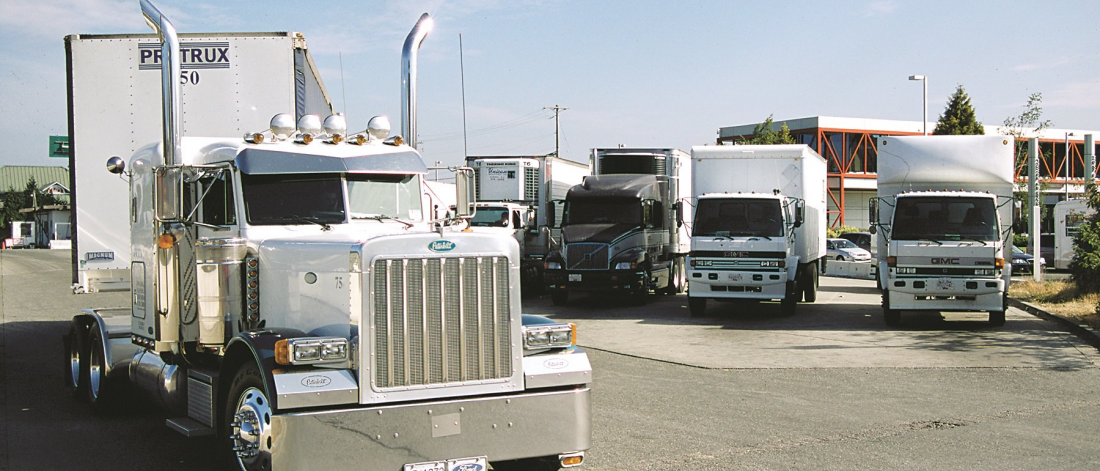
Truck Parking
Learn about truck parking initiatives and trucking regulations in Surrey.
Commercial trucking moves approximately 90 per cent of all consumer products and food and almost two-thirds (by value) of Canada’s trade with the United States. As a gateway community, supporting an efficient local trucking industry and effective goods movement is important in Surrey.
Lack of truck parking has been a long-standing issue in Surrey. Numerous efforts have been made over the years including developing the Surrey Truck Parking Strategy released in December 2019.
In October 2023, to alleviate the continued lack of truck parking facilities in Surrey, Council directed staff to identify city land that could potentially be utilized for truck parking and issue a Request for Proposals for proponents to lease and operate truck parking facilities.
Commercial Vehicle Enforcement Rules & Regulations
Heavy Commercial Vehicles
For the purpose of the City of Surrey's Highway and Traffic By-law, 1997, No. 13007, a Heavy Commercial Vehicle is any vehicle with a licensed gross vehicle weight over 5,000 Kilograms. This includes, but is not limited to, trucks, tow vehicles, wreckers, buses or highway tractors (with or without trailers).
The City of Surrey prohibits the parking of Heavy Commercial Vehicles from 7 p.m. to 7 a.m. on any street in Surrey, even those designated as truck routes. Learn about truck parking facilities located in Surrey in the map at the top of this page.
Heavy Commercial Vehicles can only park temporarily in a residential area for the purpose of loading or unloading at any time of day.
Heavy Trucks
A Heavy Truck is any commercial vehicle with a licensed gross vehicle weight over 10,000kg. This includes, but is not limited to, dump trucks, buses or highway tractors (with or without trailers).
Heavy Trucks are not allowed in residential areas for the purpose of deliveries between 7:00 pm and 7:00 am.
Truck Routes
Trucks Permitted
All truck routes are clearly marked with signage indicating direction of the truck route and time restrictions, if applicable. If there is no sign indicating a road is a truck route, it is not a truck route.
Trucks Not Permitted
Some roads have signage clearly stating No Heavy Truck Route. These roads, for a variety of reasons, are designated No Heavy Truck Route, as there are safety issues (school zones, playground zones, steep hills) associated with trucks travelling on them. As these roads are specifically named "No Heavy Truck Route," the fines associated with travelling on a No Heavy Truck Route are higher than roads without that designation.
If your delivery destination is off a truck route, you arrive at and depart from your destination by using the most direct route from the nearest truck route to your delivery point.
Securing Your Load
A properly secured load prevents injuries and accidents from occurring due to articles falling or bouncing off a truck or trailer.
You must ensure that not only is your load prevented from moving side to side or back and forth, but also upward. By preventing upward motion, you ensure your load, in the event of an accident, remains on the truck or trailer.
Learn more about Truck Parking in Surrey in Zoning Bylaw, No. 12000, Part 4, General Provisions, IL Zone and IH Zone sections.
Contact the Planning and Development Department with any questions.
Related Corporate Reports
- R144: Truck Parking Strategy Initiatives Update - July 12, 2021
- R007: Truck Parking Strategy Initiatives Update - January 11, 2021
- R116: Truck Parking Initiatives Updates - July 13, 2020
- R085: Proposed Bylaw Amendments to Facilitate Development of Authorized Truck Parking Facilities - April 14, 2016
- R015: Truck Parking Status Update - February 2, 2015
